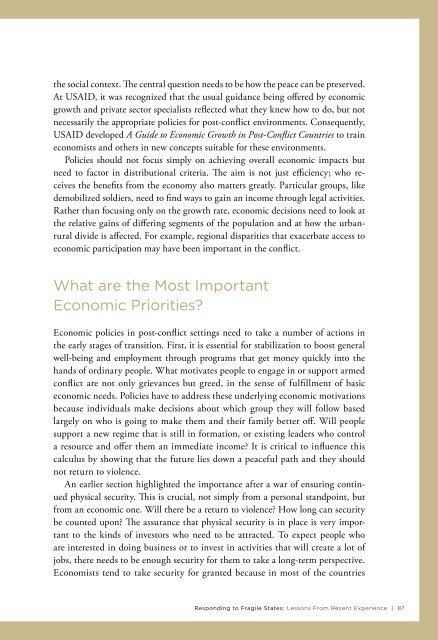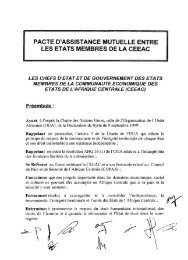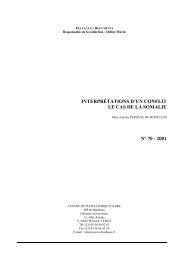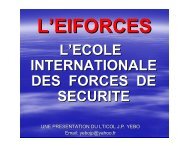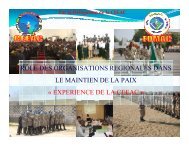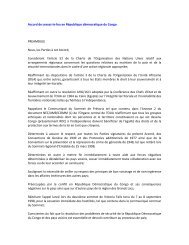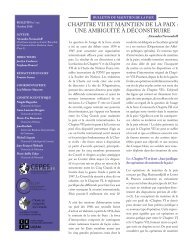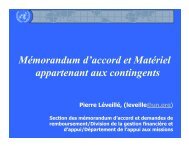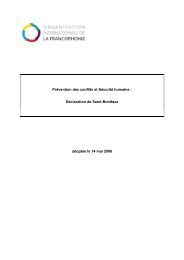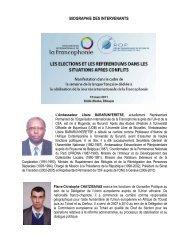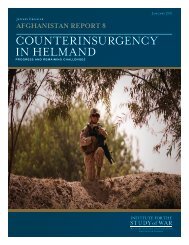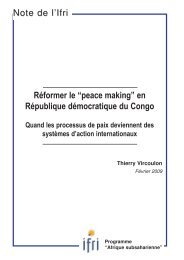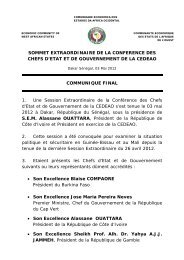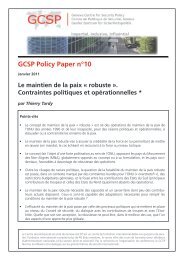engaging fragile states - Woodrow Wilson International Center for ...
engaging fragile states - Woodrow Wilson International Center for ...
engaging fragile states - Woodrow Wilson International Center for ...
You also want an ePaper? Increase the reach of your titles
YUMPU automatically turns print PDFs into web optimized ePapers that Google loves.
the social context. The central question needs to be how the peace can be preserved.<br />
At USAID, it was recognized that the usual guidance being offered by economic<br />
growth and private sector specialists reflected what they knew how to do, but not<br />
necessarily the appropriate policies <strong>for</strong> post-conflict environments. Consequently,<br />
USAID developed A Guide to Economic Growth in Post-Conflict Countries to train<br />
economists and others in new concepts suitable <strong>for</strong> these environments.<br />
Policies should not focus simply on achieving overall economic impacts but<br />
need to factor in distributional criteria. The aim is not just efficiency; who receives<br />
the benefits from the economy also matters greatly. Particular groups, like<br />
demobilized soldiers, need to find ways to gain an income through legal activities.<br />
Rather than focusing only on the growth rate, economic decisions need to look at<br />
the relative gains of differing segments of the population and at how the urbanrural<br />
divide is affected. For example, regional disparities that exacerbate access to<br />
economic participation may have been important in the conflict.<br />
What are the Most Important<br />
Economic Priorities?<br />
Economic policies in post-conflict settings need to take a number of actions in<br />
the early stages of transition. First, it is essential <strong>for</strong> stabilization to boost general<br />
well-being and employment through programs that get money quickly into the<br />
hands of ordinary people. What motivates people to engage in or support armed<br />
conflict are not only grievances but greed, in the sense of fulfillment of basic<br />
economic needs. Policies have to address these underlying economic motivations<br />
because individuals make decisions about which group they will follow based<br />
largely on who is going to make them and their family better off. Will people<br />
support a new regime that is still in <strong>for</strong>mation, or existing leaders who control<br />
a resource and offer them an immediate income? It is critical to influence this<br />
calculus by showing that the future lies down a peaceful path and they should<br />
not return to violence.<br />
An earlier section highlighted the importance after a war of ensuring continued<br />
physical security. This is crucial, not simply from a personal standpoint, but<br />
from an economic one. Will there be a return to violence? How long can security<br />
be counted upon? The assurance that physical security is in place is very important<br />
to the kinds of investors who need to be attracted. To expect people who<br />
are interested in doing business or to invest in activities that will create a lot of<br />
jobs, there needs to be enough security <strong>for</strong> them to take a long-term perspective.<br />
Economists tend to take security <strong>for</strong> granted because in most of the countries<br />
Responding to Fragile States: Lessons From Recent Experience | 87


